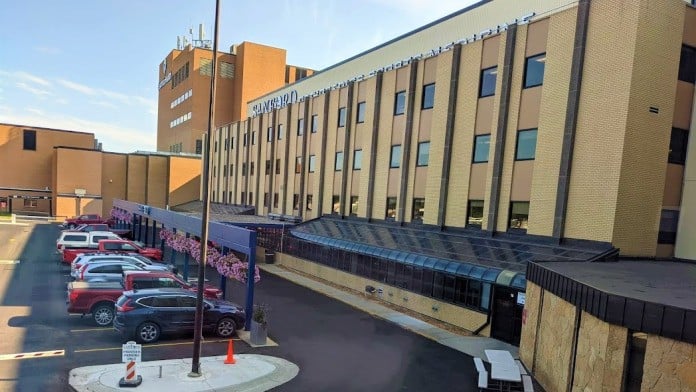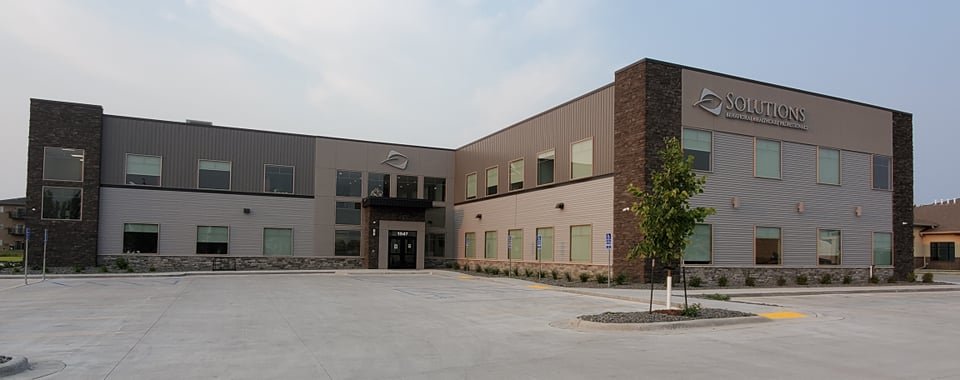Excellent program for every person that want to renew their life. I highly recommend it.
About ShareHouse
Their Treatment University program has over 100 hours of educational opportunities for clients to partake in during treatment. Personalized treatment plans use the 12 Step program as a foundation.
Inpatient programs are ideal for those with severe symptoms who could benefit most from close monitoring and access to a care team 24 hours a day. Clients stay in an 87 bed facility that includes meals, gym, and a game room for leisure activities. Clients help their care teams build a custom treatment plan that addresses their concerns. Therapy, which takes place in group and individual settings, helps clients recognize their triggers and destructive behaviors and helps them develop healthy coping mechanisms to deal with them. Treatment also provides educational opportunities to help clients develop skills to benefit them during their recovery journey. They also enroll in 12 Step programs and have access to a case management team to address co-occurring mental and behavioral health disorders.
ShareHouse provides two levels of day programs: outpatient and intensive outpatient care. Intensive outpatient treatment is offered as a transitional step from inpatient care to clients whose condition doesn’t require close monitoring. The intensive outpatient program meets for three days a week, and clients learn new coping skills while engaging with one another in self help support groups. At this level of care, clients receive a mentor who provides additional ongoing support.
In the general outpatient program, clients have greater flexibility and independence as they re-integrate with their communities. Clients meet twice per week.
Medication assisted treatment is available for clients at any level of care when they are struggling with withdrawal symptoms. Medical staff administer FDA approved buprenorphine, naloxone, Suboxone, and antabuse. These medications help clients by easing withdrawal pains and reducing cravings.
The sober living program offers support for clients who need additional time to strengthen their recovery before returning to their daily lives. Clients may be eligible to stay for up to six months. Services include outpatient therapy, drug screenings, and 24/7 supervision.
ShareHouse offers self pay and financing options. The center may be in network with insurance providers such as Aetna, Beacon, BlueCross/BlueShield, Cigna, Humana, Optum, and Wellpoint. Please verify your coverage and out of network benefits.
Facility Overview
Latest Reviews
Rehab Score
Gallery
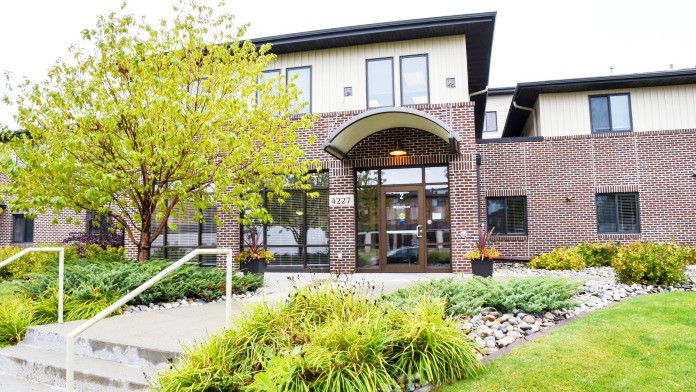
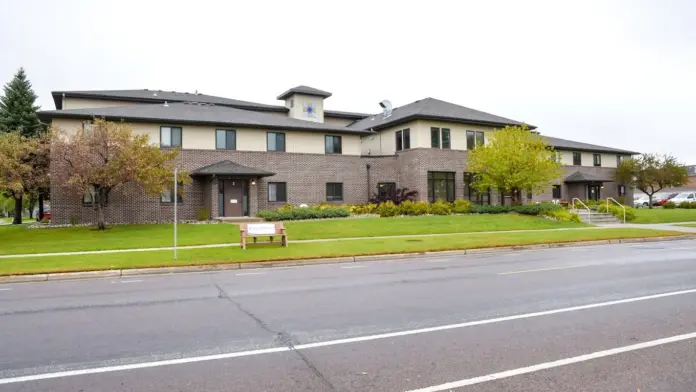
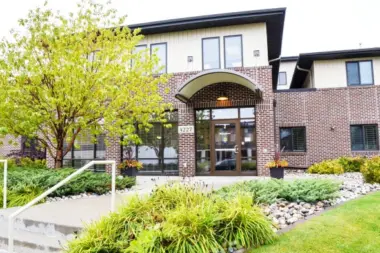
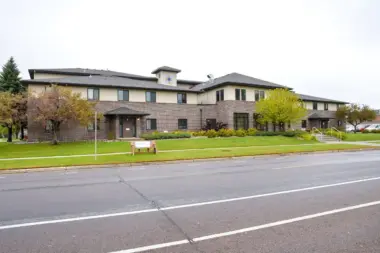
Accepted Insurance

Other Forms of Payment
Self-pay involves paying for treatment out of your own pocket. You can use savings or credit, get a personal loan, or receive help from family and friends to fund your treatment. If you don't have insurance or your insurance plan doesn't cover a specific program, self-pay can help ensure you still get the care you need.
Financial aid can take many forms. Centers may have grants or scholarships available to clients who meet eligibility requirements. Programs that receive SAMHSA grants may have financial aid available for those who need treatment as well. Grants and scholarships can help you pai for treatment without having to repay.
Medicaid is a state based program that helps lower-income individuals and families pay for healthcare. Medicaid covers addiction treatment so those enrolled can use their coverage to pay for rehab. When a program accepts Medicaid the client often pays very little or nothing out of their own pocket.
Military members, veterans, and eligible dependents have access to specific insurance programs that help them get the care they need. TRICARE and VA insurance can help you access low cost or no cost addiction and mental health treatment. Programs that accept military insurance often have targeted treatment focused on the unique challenges military members, veterans, and their families face.
Addiction Treatments
Levels of Care
Outpatient Programs (OP) are for those seeking mental rehab or drug rehab, but who also stay at home every night. The main difference between outpatient treatment (OP) and intensive outpatient treatment (IOP) lies in the amount of hours the patient spends at the facility. Most of the time an outpatient program is designed for someone who has completed an inpatient stay and is looking to continue their growth in recovery. Outpatient is not meant to be the starting point, it is commonly referred to as aftercare.
Inpatient rehabs primarily serve clients who have just completed detox, those who are in crisis and at an elevated risk of relapse, and those who have a strong history of relapse. They provide a highly structured and supportive environment and intensive supervision. Residents engage in extensive addiction counseling. Many programs also offer recovery-focused life skills training to support clients' sustained sobriety. Holistic therapies, such as yoga and meditation, are available at many facilities.
Intensive Outpatient Programs (IOP) are for those who want or need a very structured treatment program but who also wish to live at home and continue with certain responsibilities (such as work or school). IOP substance abuse treatment programs vary in duration and intensity, and certain outpatient rehab centers will offer individualized treatment programs.
The goal of the Steps group is to gain an understanding of the importance of working the 12 steps. Some of the ideas clients will learn are: anonymity and confidentiality; discussion on what to expect in meetings; positions of 12 step programs with psychotherapy and medication; understanding spirituality; finding a home group; finding and working with a sponsor; working 12 steps and presenting 1-3 in group; 12 step recovery for young people/gay/lesbian/bisexual/transgender people; non Christian faiths issues; members of minorities issues; jail or prison issues; women issues in 12 steps; and problems and solutions in early 12 step work.
In a partial hospitalization program (PHP), you'll experience intensive rehab with the ability to return home each day. PHP treatment is recommended for those with moderate to severe addictions that don't require 24/7 care. A partial hospitalization program serves as an alternative to inpatient hospitalization or as a step-down option. Throughout the week, you'll attend meetings for 4-8 hours each day, up to 3-5 days a week, for an average of 90 days. Medication management, evidence-based therapies, and relapse prevention are typical components of PHP treatment.
Medically assisted detox involves weaning your body off alcohol and drugs in a medically supervised environment. This is often the first step in the addiction recovery process. Abruptly stopping intake of alcohol and some drugs (like benzodiazepines and opioids) can cause uncomfortable side effects. In severe cases, withdrawal symptoms can even be dangerous. To minimize risks and discomfort, a team of medical professionals will monitor you 24/7, and may provide medications if necessary to ease potential withdrawal symptoms.
Treatments
The goal of treatment for alcoholism is abstinence. Those with poor social support, poor motivation, or psychiatric disorders tend to relapse within a few years of treatment. For these people, success is measured by longer periods of abstinence, reduced use of alcohol, better health, and improved social functioning. Recovery and Maintenance are usually based on 12 step programs and AA meetings.
The goal of drug rehab in North Dakota is to help individuals overcome addiction. These programs provide treatment for both mind and body and teach participants how to live healthy, productive lives without drug abuse.
Co-occurring disorder describes the co-morbid condition of a person considered to be suffering from a mental illness and a substance abuse problem Substance Use Disorder. ShareHouse is co-occurring disorders capable. It is common for patients to be present with a diagnosis in addition to chemical dependency. ShareHouse staff includes a psychologist, mental health, chemical dependency, and nursing professionals who are dedicated to helping individuals with substance abuse disorders and other co-morbid mental conditions.
A combined mental health and substance abuse rehab has the staff and resources available to handle individuals with both mental health and substance abuse issues. It can be challenging to determine where a specific symptom stems from (a mental health issue or an issue related to substance abuse), so mental health and substance abuse professionals are helpful in detangling symptoms and keeping treatment on track.
Opioid rehabs specialize in supporting those recovering from opioid addiction. They treat those suffering from addiction to illegal opioids like heroin, as well as prescription drugs like oxycodone. These centers typically combine both physical as well as mental and emotional support to help stop addiction. Physical support often includes medical detox and subsequent medical support (including medication), and mental support includes in-depth therapy to address the underlying causes of addiction.
Programs
Adult rehab programs include therapies tailored to each client's specific needs, goals, and recovery progress. They are tailored to the specific challenges adult clients may face, including family and work pressures and commitments. From inpatient and residential treatment to various levels of outpatient services, there are many options available. Some facilities also help adults work through co-occurring conditions, like anxiety, that can accompany addiction.
Clinical Services
Cognitive Behavioral Therapy (CBT) is a therapy modality that focuses on the relationship between one's thoughts, feelings, and behaviors. It is used to establish and allow for healthy responses to thoughts and feelings (instead of unhealthy responses, like using drugs or alcohol). CBT has been proven effective for recovering addicts of all kinds, and is used to strengthen a patient's own self-awareness and ability to self-regulate. CBT allows individuals to monitor their own emotional state, become more adept at communicating with others, and manage stress without needing to engage in substance abuse.
Dialectical behavioral therapy (DBT) Skills Group meets for one 2-hour session weekly. Group runs for a minimum of 16 weeks and new members are accepted once every 4 weeks. The group is open to men and women with any co-occurring diagnosis; however DBT is designed to target individuals with the chronic life management deficits that often result from personality disorders. Specifically, DBT builds skills in regulating emotion, tolerating distress, and interacting effectively and appropriately with others.
Activity Process Group is a weekly group for men to discuss issues of concern to them, as well as introduce participants to some fun/healthy ways to deal with those issues. This group will use activities as a means to process a variety of things that can be difficult for men to discuss, such as issues with their father or fears of being a father, ethical questions, dealing with loss and forgiveness, and the impact music plays in their lives.
ShareHouse Family and Recovery group is for any person in any level of care who has completed the Introduction to Family group. This group is more extensive than the introductory group and group members are encouraged to find meaning into their relationships, gain insight into their current and past relationships, and find ways to have healthier relationships. Some common topics of group include (but are not limited to): making amends and forgiveness in families, communication, regaining trust, and many interactive activities based on family backgrounds. The Family Education group is designed to educate family/loved one’s of someone who is in treatment by giving them a better understanding of addiction. It provides support for family/loved one’s who have a relationship with an addict.
Group therapy is any therapeutic work that happens in a group (not one-on-one). There are a number of different group therapy modalities, including support groups, experiential therapy, psycho-education, and more. Group therapy involves treatment as well as processing interaction between group members.
In individual therapy, a patient meets one-on-one with a trained psychologist or counselor. Therapy is a pivotal part of effective substance abuse treatment, as it often covers root causes of addiction, including challenges faced by the patient in their social, family, and work/school life.
Life skills trainings involve all the skills a person must have in order to function successfully in the world. These include time management, career guidance, money management, and effective communication. Truly successful addiction recovery is based on the ability to not only live substance-free, but to thrive. Life skills teaches the practical necessities of functioning in society, which sets clients up for success in life, and therefore sobriety.
Nicotine Replacement Therapy (NRT) is a way of getting nicotine into the bloodstream without smoking. It uses products that supply low doses of nicotine to help people stop smoking. The goal of therapy is to cut down on cravings for nicotine and ease the symptoms of nicotine withdrawal.
Beyond Trauma is an experiential psycho-educational program based upon Stephanie Covington’s gender informed curriculum and Francine Shapiro’s science-validated approach towards healing small and large trauma. During the 12-sessions participants will explore a variety of topics. What is trauma? How has trauma impacted my life? What can I do to effectively cope? Exploring these questions, and others, supports movement beyond trauma.
Amenities
-
Residential Setting
-
Private Setting
Staff & Accreditations
Staff
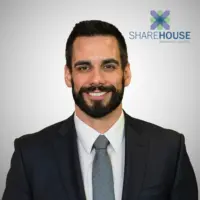
Jeremy Traen, LCAC, LADC, LBSW, MBA
President/CEO
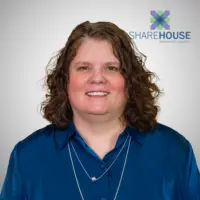
Kara Winkelman, MAcc
Chief Financial Officer
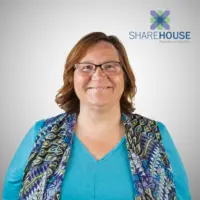
Roberta Griffin-Stinson, MS, CRC, LMAC, WY LAT, WY LPC
Chief Compliance Officer
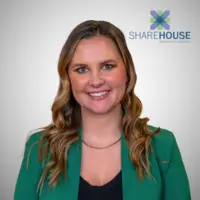
Wendy Walton
VP of Programming
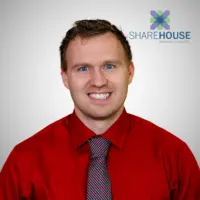
Evan McGauvran
VP of Human Resources
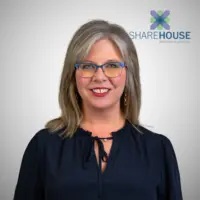
Julie Rivenes
Executive Foundation Director

Lisa Trudeau
Executive Coordinator
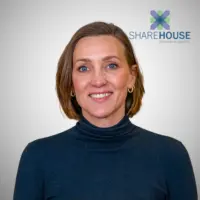
Kristi Kilen, LMAC, LPC
Director of Clinical Services-Outpatient Fargo
Accreditations

The Commission on Accreditation of Rehabilitation Facilities (CARF) is a non-profit organization that specifically accredits rehab organizations. Founded in 1966, CARF's, mission is to help service providers like rehab facilities maintain high standards of care.
CARF Accreditation: Yes
Contact Information
4227 9th Avenue South
Fargo ND, 58103











